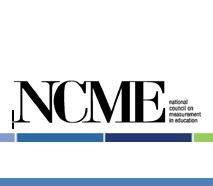The Department of Educational Psychology’s students and faculty will present 28 times at this year’s American Educational Research Association (AERA) and National Council on Measurement in Education (NCME) annual meetings, held jointly in Toronto, Canada April 5-9.
Browse the presentation topics below, or access the full schedule of Department Educational Psychology presentations in advance of the conferences.
2019 AERA and NCME presentations
Abdelsamea, M.A., Davenport, E., Measurement Invariance of the LASSI-II for Gender and Discipline in Egyptian Students.
Davenport, E., *Park, Kyungin, Davison, M.L., & *Mrutu, Amaniel P. Is Prior Achievement Equally Predictive of Mathematics Course Taking for all Ethnic Groups?
Davison, M.L., Davenport, E., & *Park, Kyungin. (2019, April). Moderated Regression Variants via Theoretically Meaningful Constraints to Assess Subpopulation Differences.
*Butterfuss, R., *Kim, J., *Hock, K., Goldman, S. R., & Kendeou, P. (April, 2019). Fighting fire with fire: Using personal anecdotes to combat socio-scientific misconceptions.
*Cabrera, J.C., *Karl, S.R., & Rodriguez, M.C. (2019, April). Predicting college enrollment for students who partake in music or dance lessons using propensity score matching.
*Chavez, C., *Cabrera, J.C., & Rodriguez, M.C. (2019, April). A validity argument sensitivity analysis of social and emotional learning measures with few items.
*Chavez, C., Rodriguez, M.C., *Do, T., & *Ihlenfeldt, S. (2019, April). Racial and gender expression discrimination among high school students.
*Do, T., *Vue, K., & *Park, K. (2019, April). Nonlinear association of Asian student school composition and Hmong student developmental skills.
Harwell, M. R. (2019, April) An effect size for variance heterogeneity in meta-analysis.
Harwell, M., *
*Jia, H., *Peralta, Y., & Harwell, M.R. (2019, April) How many clusters?
*Kang, Y., *Nickodem, K., Mang Han, S., *Smith, M., & Rodriguez, M.C. (2019, April). Intensity and breadth of OST activity participation: Connecting latent classes, student characteristics, and educational outcomes.
*Kang, Y., Rodriguez, M., & *Vue, K. (2019, April). Psychometric evaluation of social emotional learning measures: Applying multidimensional IRT.
Kendeou, P. (2019, April). Academia: Striving for equilibrium. Invited talk at the PD course ‘How to get published’ at the annual meeting of the American Educational Research Association, Toronto, Canada.
Kendeou, P., McMaster, K., *Im, S., Slater, S., & The TeLCI Team. (2019, April). The promise of TeLCI for students with comprehension difficulties.
*Lamm, R., *Do, T., Rodriguez, M., Scales, P., & Roehlkepartain, E. (2019, April). Measurement invariance through multigroup alignment of 29 countries: International Developmental Assets Profile.
*Nickodem, K., Rodriguez, M.C., *Lamm, R., & *Park, K. (2019, April). Social and emotional learning measures ICCs and associations with school composition and achievement.
*Palma, J., *Smith, M., *Miranda, A., & Rodriguez, M.C. (2019, April). Teacher-school support, academic goals, and proportion of Latino students: A hierarchical linear modeling study.
Rodriguez, M.C., *Dosedel, M., & *Kang, Y. (2019, April). Validation of social and emotional learning measures in inequitable settings.
*Smith, M., *Kang, Y., *Vue, K., *Miranda, A., & Rodriguez, M.C. (2019, April). Investigating internal structure of social and emotional learning measures: A bifactor approach.
Tatto, M.T., Rodriguez, M.C., *Palma, J., & *Nickodem, K. (2019, April). A comparative international study of beliefs of future teachers and their teacher educators.
*Wagner, K., Kendeou, P., McMaster, K., & Bulut, O. (2019, April). Development of a Technology-Based Assessment of Inference Making in Young Children.
Xiao, J, *Bulut, O., & Rodriguez, M.C. (2019, April). Nonresponse issue in noncognitive measures: Validity approach using explanatory item response modeling.
* Indicates current or former students.





